
Vietnam’s fruit and vegetable exports to EU triple in four years
19:05 | 23/03/2025 20:40 | 23/02/2026Trade
Hanoi, October 1, 2025 – Saxony’s Minister of Science, Sebastian Gemkow, has officially inaugurated the Saxon Science Liaison Office (SSLO) Vietnam. The SSLO is legally established as the Representative Office of Leipzig University in Ho Chi Minh City, based on the license granted by the Vietnamese Ministry of Education and Training.
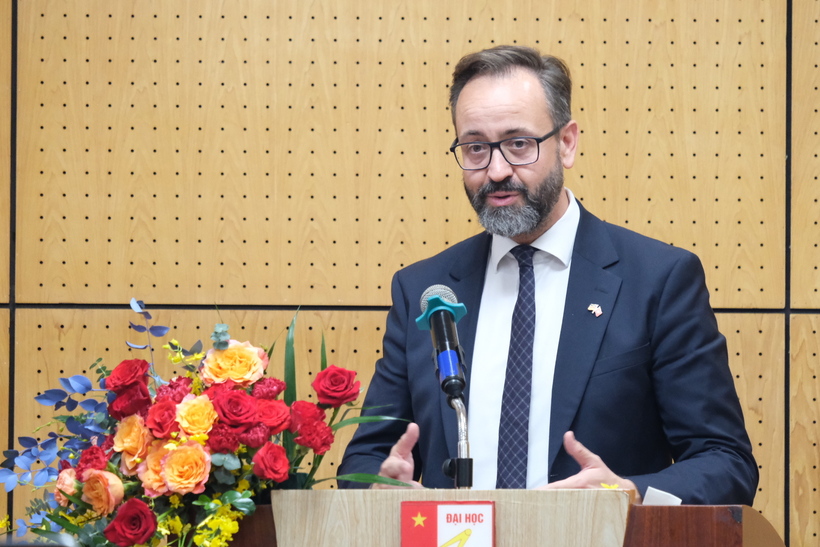
Saxony’s Minister of Science Sebastian Gemkow. Photo: Le An
From this single legal base in Ho Chi Minh City, the SSLO operates as a platform for academic cooperation and student advising across Vietnam. In Hanoi, activities are already underway through outreach and project work, and a permanent branch is planned to be established in the near future.
The SSLO Vietnam is part of a global network of Saxon liaison offices, complementing those in Taiwan, Uzbekistan, Mongolia, India, and Chile. Its mission is twofold: to attract talented students and young researchers to Saxon universities, particularly in MINT fields, and to foster long-term academic cooperation and research partnerships between Saxon and Vietnamese institutions. At present, more than 20 institutional collaborations already link universities from both regions.
Science Minister Sebastian Gemkow highlighted Vietnam’s growing importance as a partner in his remarks, saying that Vietnam, as a rapidly developing scientific hub, is increasingly emerging as an excellent partner for Saxon universities and research institutions. He expressed confidence that the exchange of students and researchers, as well as the professional experience young Vietnamese can gain in Saxony, will bring mutual benefits. He also noted that the already close ties between Saxon and Vietnamese universities provide an excellent foundation for the work of the SSLO.
The Rector of Leipzig University, Prof. Dr. Ines Obergfell, underscored the office’s role as a bridge-builder, stating that the Saxon Science Liaison Office stands for the close and trusting cooperation between Saxony and Vietnam in science and society.
She emphasized that its mission to attract young talent for studies and a future in Saxony is also a contribution to securing skilled professionals and fostering international exchange. She added that Leipzig University is delighted to award an Agricola Scholarship this year to a student from Ho Chi Minh City, who will be studying Veterinary Medicine in the state examination program. A total of 127 Vietnamese students are currently enrolled at Leipzig University, a clear sign of the growing ties between the two countries.
At both SSLO Vietnam locations, the inauguration ceremonies were part of Leipzig University’s Global Campus Forum, which featured lectures and events on Saxon–Vietnamese academic cooperation. Minister Gemkow delivered a keynote speech titled “Strategic Partnerships for Joint Excellence – Saxony’s Vision for Academic Cooperation with Vietnam.”
The establishment of the SSLO Vietnam aligns with the broader goals of Saxon Science Liaison Offices worldwide. A key objective is to present the Free State of Saxony as an attractive working and academic environment to young people in partner countries from the outset. This is achieved through active student recruitment, particularly in disciplines facing skills shortages, and through fostering academic exchange between universities and research institutions. These activities are part of the Saxon state government’s action plan to attract international academic and skilled workers to Saxony.
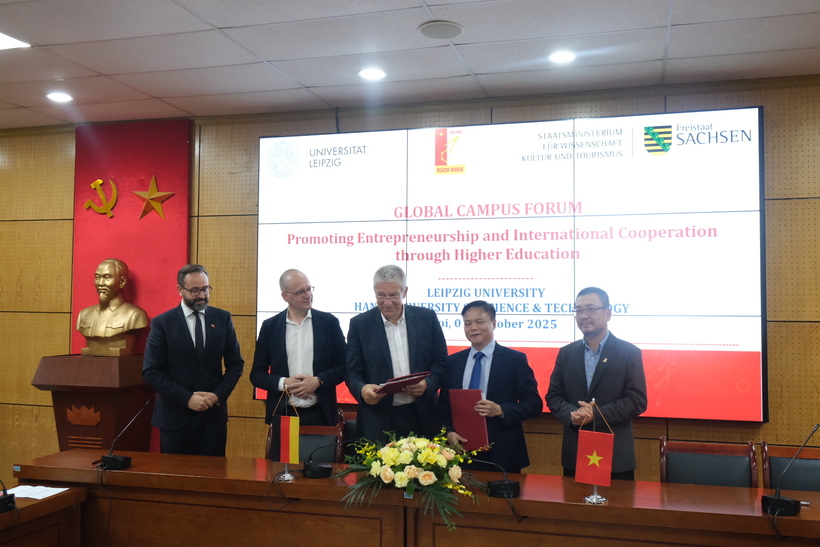
Signing ceremony of the cooperation agreement between Hanoi University of Science and Technology (HUST) and Leipzig University. Photo: Le An
Two mobility programs currently support scientific exchange between Saxony and partner countries including Taiwan (China), India, Uzbekistan, Mongolia, Chile, and Vietnam.
The Saxon Student Mobility Program (SSMP) enables Saxon students and doctoral candidates to spend a semester or complete their thesis abroad in one of the partner countries, while students and doctoral candidates from these countries receive support to study at a Saxon university.
The Saxon Science Ambassador Program (SSAP) funds Saxon researchers to participate in international conferences, workshops, and events, conduct cooperation talks, research planning, partnership development, and deliver lectures, seminars, or teaching abroad.
Vietnam, with a population of nearly 99 million, has more than 13 million people between the ages of 15 and 24. In 2023, the country allocated 2.98% of GDP to education and 0.53% to research. Around 2.3 million students were enrolled in higher education that year, almost half of them women. According to DAAD, Vietnam has increasingly prioritized high-quality science and education in recent years as key drivers of economic and societal development.
By 2045, Vietnam aims to become a high-income country. To achieve this, the government has launched far-reaching higher education reforms, including a comprehensive package adopted in early 2025 to strengthen research, innovation, and technology development. This includes public investment in artificial intelligence, quantum computing, semiconductors, and big data, along with the establishment of a new steering committee to accelerate digital transformation. Four new higher education centers focused on STEM subjects are planned, expected to reach up to one million learners.
By 2030, Vietnam plans to significantly expand its higher education sector, targeting three million total enrollments and increased global competitiveness. This strategy involves tripling the number of international students, expanding joint study programs with foreign partners, and integrating over 80% of Vietnamese universities into international research collaborations. Quality assurance and improvements in research and teaching are gaining importance, as is the expansion of private and international universities.

19:05 | 23/03/2025 20:40 | 23/02/2026Trade

19:05 | 23/03/2025 20:38 | 23/02/2026Trade
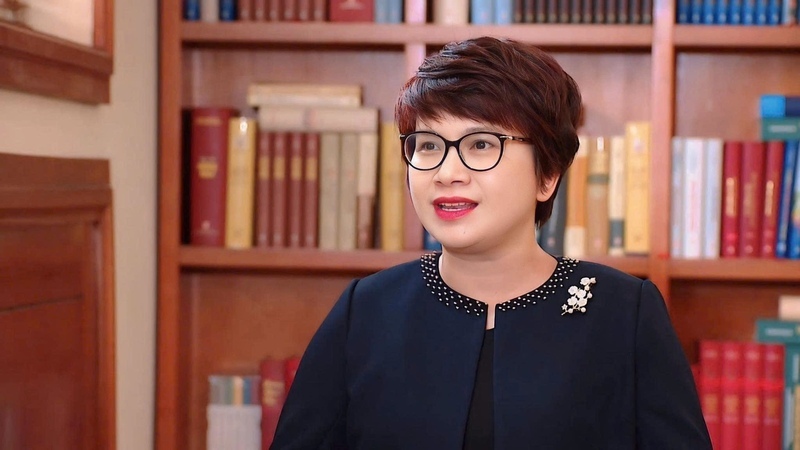
19:05 | 23/03/2025 20:30 | 23/02/2026News and Events
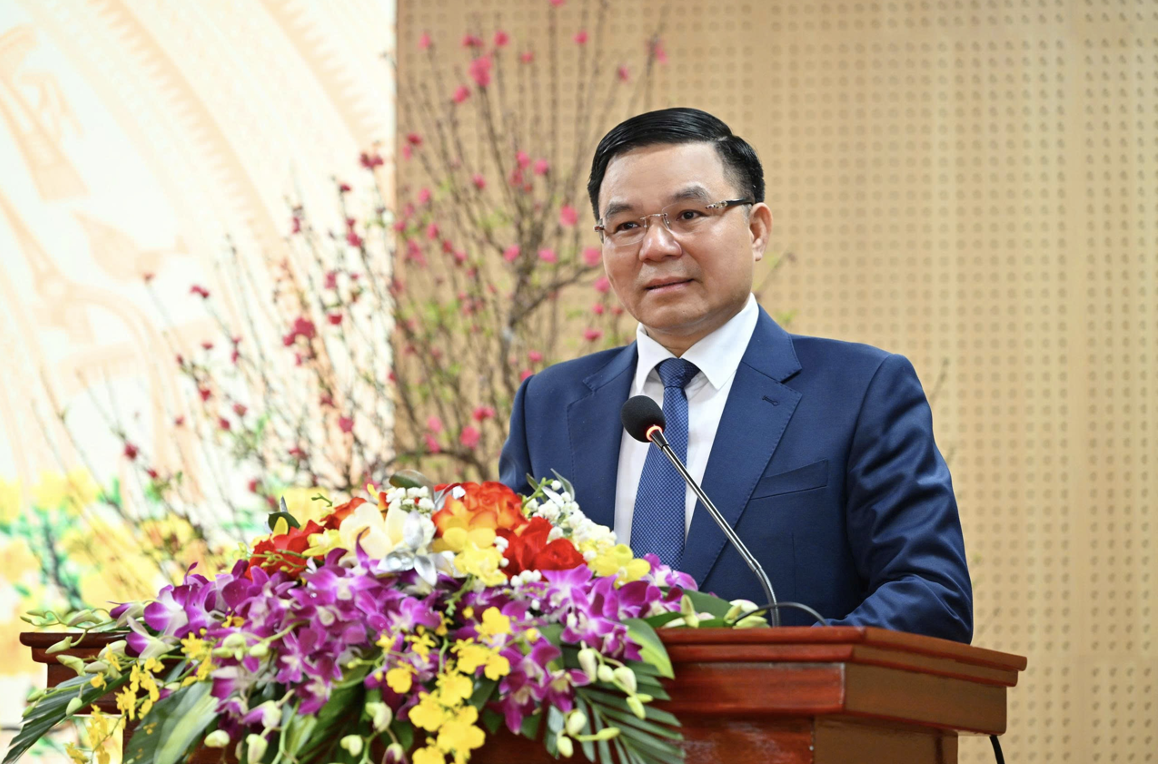
19:05 | 23/03/2025 20:29 | 23/02/2026News and Events
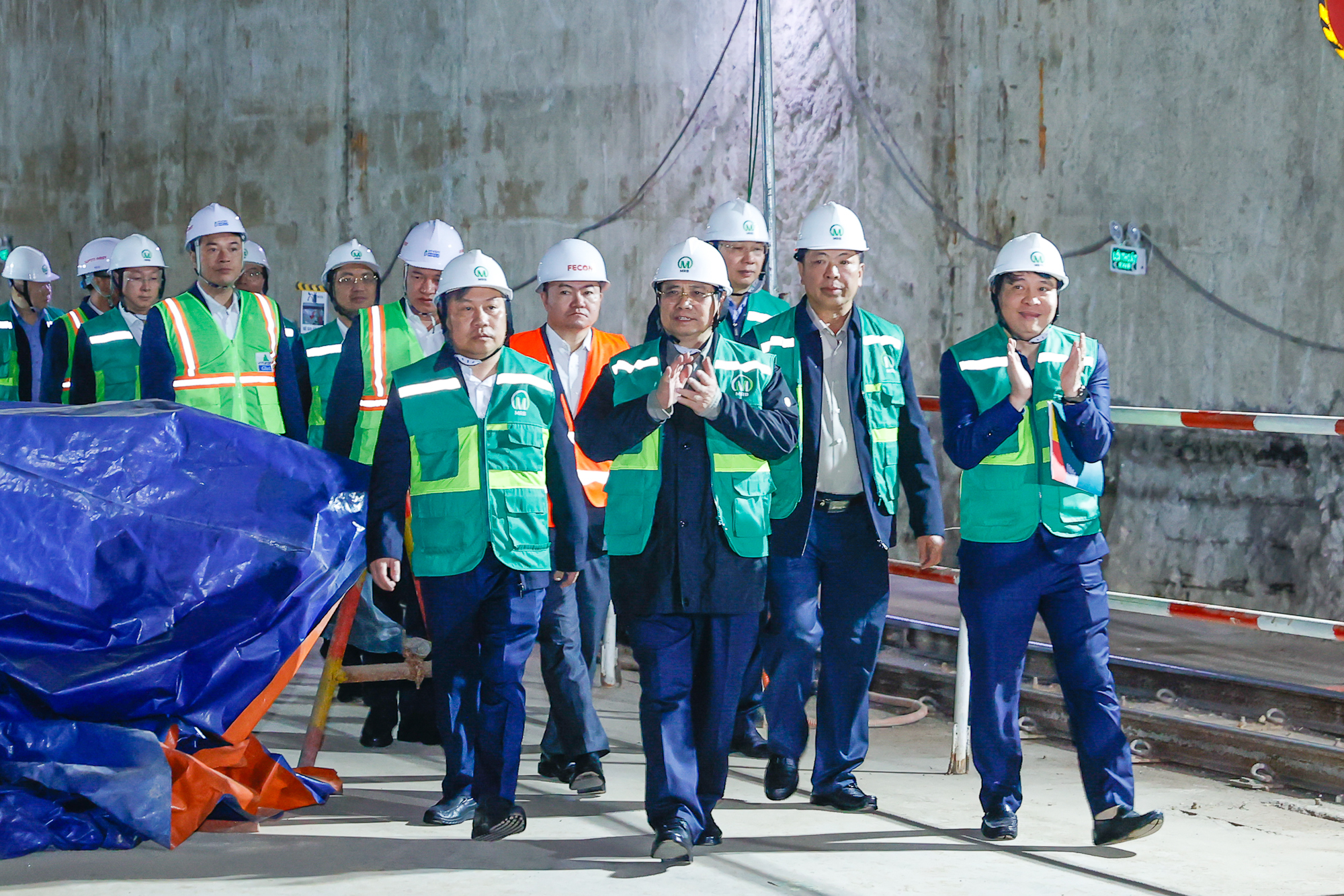
19:05 | 23/03/2025 20:14 | 22/02/2026News and Events